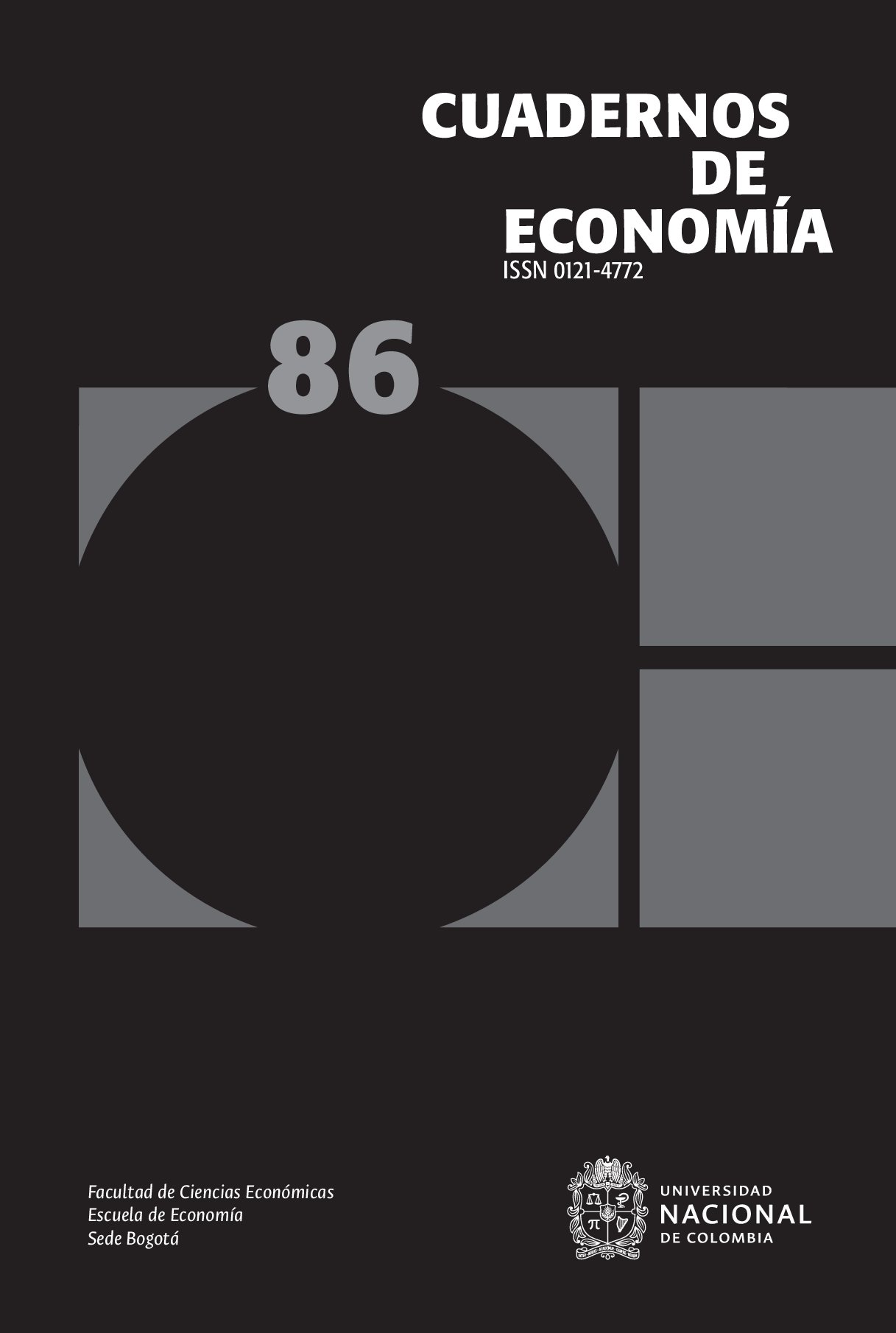Number:
82
Published:
Classification JEL:
C02, J01, J64, J81

The most recent
Rocío Clara Alexandra Mora-Quiñones, Antonio José Orozco-Gallo, Dora Alicia Mora-Pérez
Leonardo Fabio Morales, Leonardo Bonilla-Mejía, Didier Hermida-Giraldo, Francisco Javier Lasso-Valderrama, José Pulido
Constanza Martínez-Ventura, Ligia Alba Melo-Becerra
The main cities of the Colombian Caribbean have recently reached the lowest unemployment figures in the country. However, they exhibit the highest informality rates. The objective of this paper is to analyse the situation of informality and the quality of employment in the three main cities of the Colombian Caribbean. The informality was reduced between 2007-2018 and the conditions of work life, studied through the Multidimensional Index of Quality of Employment (IMCE), are unattractive and less favourable for those with low educational level employment, domestic employees, self-employed workers, or those who work for small companies.


 Gabriel Orlando Rodríguez-Puelloe,
Gabriel Orlando Rodríguez-Puelloe,